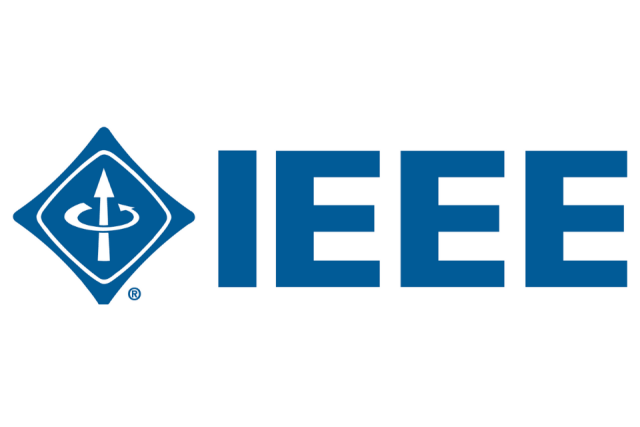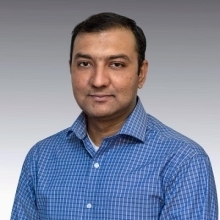
Syed Ahmad Chan Bukhari, Ph.D., Assistant Professor, Computer Science, Mathematics, and Science, and Program Director, Healthcare Informatics, The Lesley H. and William L. Collins College of Professional Studies, was recently awarded the Institute of Electrical and Electronics Engineers (IEEE) Technological Innovation Award for making significant advances in the standardization of biomedical data.
“I am grateful to the IEEE for honoring me with this award,” said Dr. Bukhari. “To be recognized by such a prestigious organization is both an honor and a great responsibility.”
The IEEE is the world’s largest technical professional organization for the advancement of technology, with more than 423,000 members in over 160 countries.

Dr. Bukhari came to St. John’s in September from Yale University and leads the University’s Healthcare Informatics program. St. John’s is one of the first New York-area colleges and universities to offer a Healthcare Informatics degree program, a field which combines elements of healthcare sciences, computer science, information science, and cognitive science to study health data to enable health providers to make better healthcare decisions.
“I am delighted that Dr. Bukhari was recognized by the IEEE as the recipient of the Technology Innovation Award,” said Katia Passerini, Ph.D., PMP, Dean and Distinguished Chair, The Lesley H. and William L. Collins College of Professional Studies. “He has identified novel techniques to understand large healthcare data sets and applies his knowledge of machine learning, ontologies, and natural language processing to solve complex healthcare challenges.”
Dr. Bukhari’s research efforts address several core problems in the area of healthcare informatics and data science. He particularly focuses on devising techniques to semantically federate heterogeneous biomedical data and to further analyze and develop clinical predictive models for disease prediction. These techniques further alleviate many data access-related challenges faced by healthcare providers.
“In a very short time since joining St. John’s University, Dr. Bukhari has already engaged students in research activities and published four competitive articles,” Dr. Passerini added.
“He has also introduced new ideas in our Healthcare Informatics program and has collaborated closely with the College of Pharmacy and Health Sciences.”
Moving ahead, one of Dr. Bukhari’s primary goals is to create and cultivate a research culture at St. John’s that revolves around healthcare informatics. “I love getting students involved in research,” he said. “I want them to discover and invent new things. That is my inspiration.”
